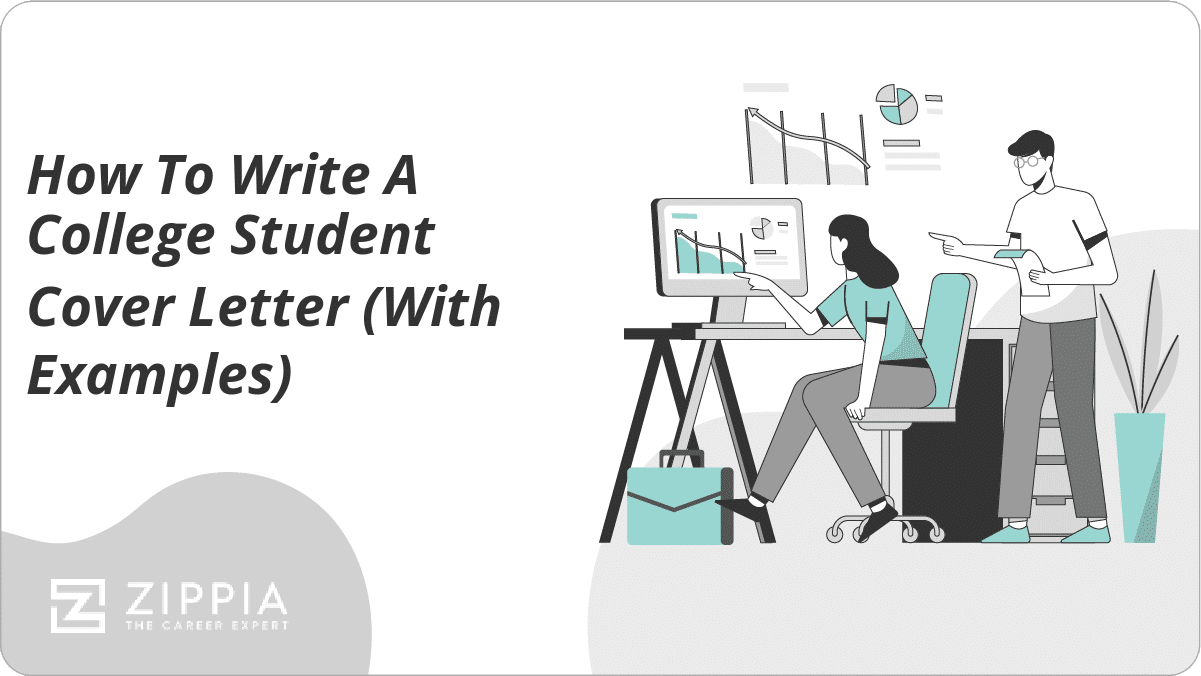- Interview Prep
- Star Method For Answering Questions
- Interview Preparation Checklist
- Star Interview Questions
- Words To Use In An Interview
- Mock Interview Preparation
- How To Make A Good Impression
- Bring Writing Samples
- How To Relax Before An Interview
- Interview Coaching
- Common Video Interview Mistakes
- Common Phone Interview Mistakes
- How To Ace Your Interview For A Remote Job
- Good Weaknesses For A Job Interview
- Good Strengths For A Job Interview
- How To Prepare For A Phone Interview
- Talk About Being Laid Off
- How To Decline An Interview
- How Early Should You Arrive For An Interview
- Interview Etiquette Tips
- Phone Interview Tips
- Types Of Interviews
- Communication
Find a Job You Really Want In

If you’re on this page, odds are you’ve already taken some pretty big steps when it comes to finding yourself a job.
You’ve written your resume and at least a basic outline for your cover letter, and put together whatever other application materials your particular field calls for (portfolios, writing samples, etc.). Maybe you’ve even come up with a few different versions for each of these if you’re considering different kinds of careers.
Then you trawled the internet for job postings, looking for anything at all that piqued your interest. If you’re really on top of things, you tailored your documents as specifically as you could to your desired listing.
Finally, you gathered all your documents together, sent them out into the deep dark void, and started your turn in the newest round of The Waiting Game.
Days, weeks, or even months later, you finally got a response. They like your stuff! Random Corporate Entity thinks you might have what it take to be part of the team.
But now years have passed. You’re older. Phones are everywhere. And instead of an in-person interview like you expected, they want to talk to you over the phone.
Now what?
Conducting phone interviews, or “phone screening,” is becoming more and more common as a preliminary step for companies trying to weed out lesser job applicants. In-person interviews are still typically the final step in the process, but phone screening offers a simple, quick, and convenient option for hiring managers looking to get the best applicant, since they can be done from almost anywhere.
For you, the applicant, there’s a whole new set of challenges that come with speaking to someone over the phone, but if you’re careful and plan ahead, you might end up finding more advantages than disadvantages in the medium.
Part 1: Prep Work
One of the biggest advantages you have in any phone interview is your ability to keep your application materials on hand at all times.
In person, it can seem unprofessional at points to bring your own resume for yourself to look over while you’re being grilled by a hiring manager — after all, they’re the ones looking over your resume, and you having to constantly consult a sheet of paper adds an extra layer of distance between you and the hiring manager that doesn’t need to exist.
In a phone interview, however, the distance is already there, and having information on hand for referencing isn’t disruptive in the same way it might be in person. Theoretically, in a phone interview you should always be able to have information on hand for any of the most common interview questions you might be asked.
The downside of this is what effect this knowledge has on a hiring manager’s expectations for phone interviewees. Until the manager calls you, they have no way of knowing for sure whether you have these materials on hand or not.
They’re going to be looking at your materials themselves as they’re talking to you, so if they ask you about something specific and you end up having to look that up or, worse yet, not being able to remember something significant, keep in mind that you’re going to end up looking very unprepared.
That kind of fumbling might be forgiven in person, where body language can be used to pick up some of the slack when it comes to communication, but over the phone, your voice is all you have. As a result, you want to be very intentional about every word you say.
Some good ways to prepare for an interview:
-
Research the company beforehand. This will help keep you from asking questions that you could easily answer yourself. Keep this information on hand, and it might help to summarize parts of it on note cards for your own personal use.
-
Have your resume and cover letter open in front of you. Again, they will certainly have this information on hand, so even if you’re reasonably confident in your ability to recall what you originally wrote down, there’s no reason why you shouldn’t at least have it nearby in case of an emergency.
-
Have numbers ready. In case they ask, have some numbers in mind as far as your previous salaries and your compensation expectations for the position to which you’re applying. They might not bring it up, but if they do, you probably don’t want to be coming up with those on the spot.
Whatever you do, make sure you have all reference materials on hand before the interviewer calls.
Part 2: Find Your Happy Place
Another big advantage is in your ability to control your own environment. Treat this interview like you’re doing it in person, and remove all distractions from the area in which you’re working.
If at all possible, use a personal, private space rather than a coffee shop or co-working space, in order to reduce noise pollution and ensure that you won’t be interrupted.
In the event that there are any animals in your house, make sure you put them outside or in a different room — the last thing you want is a cute little guy running up to you and wrecking your flow. No matter how cute said little guy might be.
Clear your space, and clear your mind. Find your center. And have a glass of water handy in case you’re mouth gets dry.
Then sit and wait for the call.
Part 3: The Interview
Make sure you introduce yourself clearly, in such a way to imply that you were anticipating and ready for the interview.
Speak clearly and enunciate, but try not to focus too hard on doing so. You don’t want to sound unnatural or robotic. Keep the tone as conversational as you can — just be sure that your interviewer can hear and understand you.
After that, it’s really just a matter of whether you actually prepared for the questions you’re going to be asked. Again, it’s a really good idea to have your resume and other application materials on hand here.
Beyond that, everything else is just about having basic social skills. But that’s a whole other article.
Part 4: Housekeeping
That’s it! You killed it, probably. And if not, you’ll certainly have a better idea of how much you need to have prepared for next time.
It’s a balancing act, after all. Some people are just naturally good at improvisation, and if they have great memories to boot, they’ll have an easy time with interviews of any stripe or color. Everyone else just has to learn to balance out their weaknesses with the appropriate level of prep work.
Now that you’ve had your phone interview, you want to make sure that you follow up appropriately with a good thank-you letter.
Phone Interview Tips
-
Confirm the time and reschedule if needed. Treat a phone interview like you would a normal interview — set aside time in your day before and after. If you have a lot going on, consider setting a reminder on your phone for 30-45 minutes before your scheduled interview time.
If something comes up or if the first time the employer suggests doesn’t work for you, get in contact with the recruiter to reschedule as soon as possible. Being proactive and paying attention to detail are great qualities for a job candidate.
-
Charge your phone. Pretty simple one here; if you’re using a cell phone, make sure you’re at 100% battery and/or plugged into a power source. If your phone call is happening on an app rather than a normal call, make sure whatever app you’re using is up-to-date and working properly.
-
Know your interviewer. Try to find out if you’ll be talking to a recruiter, a hiring manager, or your actual potential boss. Who you’re talking to changes how you prepare.
A recruiter will probably ask you more general questions about your experience, while a direct supervisor will get into the nitty-gritty of the job’s responsibilities.
Your word choice during the interview itself should also change depending on who you’re speaking to. Reduce your level of industry jargon if you’re talking to someone who doesn’t know what you’re talking about.
-
Listen and smile. Some people get nervous and talk a whole lot during phone interviewers. But it’s equally important to actively listen to your interviewer and make sure you answer their questions. Don’t be afraid to ask the person to repeat themselves if you don’t understand what they’re saying the first time.
And, yes, you should smile during a phone interview, even if nobody can see you. Your tone of voice naturally changes when you’re smiling, and you’ll come across as more positive and engaged if you put on your happy face.
-
Take notes. When it comes time to send that follow-up email, you’ll want to reference at least one moment from the interview itself. That’s where note-taking comes in handy.
Plus, some information you’ll receive during a phone interview will be vital for boosting your chances at success during the next round of interviews.
Review these notes and use them to come up with compelling and thoughtful questions. Not to mention that the interviewer’s answers should help you decide if this company is one you’d like to work for.
-
Practice. If you’ve never done a phone interview before, try performing a mock interview beforehand. Send a friend some common interview questions and ask them to call you and behave as the interviewer. It can be a little awkward, but when the real thing comes around, you’ll feel more comfortable having practiced.
-
Prepare answers to the most common interview questions. We don’t recommend writing a script for interview answers to the most common questions, but it’s not a bad idea to have a list of bullet points for the ones you expect to come up. That way, you can be sure to hit the key talking points while still coming across as natural.
- Interview Prep
- Star Method For Answering Questions
- Interview Preparation Checklist
- Star Interview Questions
- Words To Use In An Interview
- Mock Interview Preparation
- How To Make A Good Impression
- Bring Writing Samples
- How To Relax Before An Interview
- Interview Coaching
- Common Video Interview Mistakes
- Common Phone Interview Mistakes
- How To Ace Your Interview For A Remote Job
- Good Weaknesses For A Job Interview
- Good Strengths For A Job Interview
- How To Prepare For A Phone Interview
- Talk About Being Laid Off
- How To Decline An Interview
- How Early Should You Arrive For An Interview
- Interview Etiquette Tips
- Phone Interview Tips
- Types Of Interviews
- Communication





